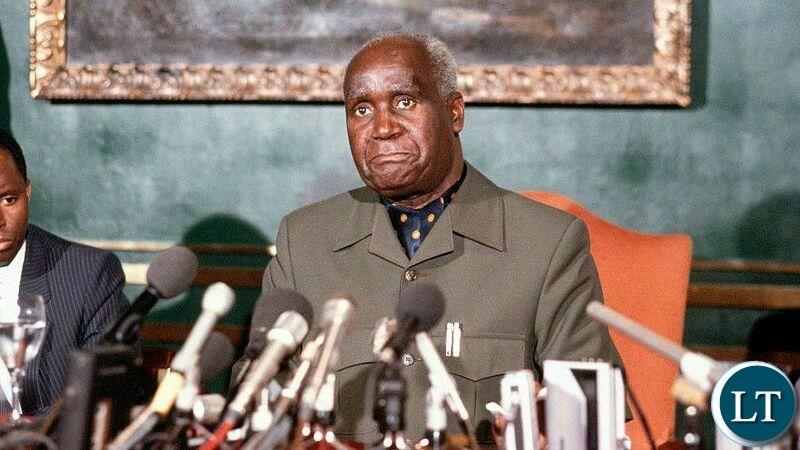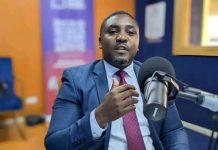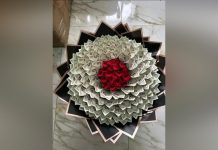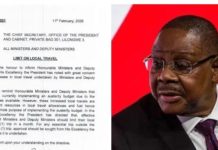Africa-Press – Zambia. By Kapya Kaoma
When politicians, pastors and scholars term KK as the role model for a Zambian President, I wonder whether they are under the curse of Afroamnersia. I have grand respect for KK for his post-presidential ubuntu and humility and I join the nation in mourning this son of the Soil. But when people blindly characterize his 27 year reign as exemplary and inspirational, it explains their lack of respect for human rights, the rule of law, the cult of the big man, the politicization of the law enforcement agencies, and the employment of cadres in politics of intimidation–all these characterized the UNIP era during the KK regime. Under the curse of Afroamnersia, politicians’, pastors’, scholars’, and civic leaders’ memories are erased and Dr. Kaunda’s 27 year reign no longer exists.
The historical truth speaks for itself–KK was a deadly dictator and his death should not force us to rewrite history. We ought to mourn and honor KK with the truth–our children must know the facts about our founding President. He was not a Mother Teresa or a Nelson Mandela, but a dictator, whom we called Mankangala, and whose Party UNIP we called “mulilo, uwaikatako apya ( fire, whoever touches it burns). The violence that characterizes our politics today, the empowering of cadres, the misuse of the police, and unaccountability of the president are some of the blessings of the KK regime. We may be ashamed to say it aloud, but we should not shower false praises on our founding President, whose Party UNIP those born after the mid 1980s will never know.
The formation of the Movement for Multi-Party Democracy (MMD) was due to Dr. Kaunda’s dictatorial decision to outlaw opposition parties in February 1972, which was later made Constitutional in July 1973–something he personally opposed in his 1964 article entitled, “The Future of Democracy in Africa.” He justified his actions on the premise of ensuring rapid development and protecting Zambia from South African and Rhodesian forces. Many people are still repeating this fallacy without questioning. The only problem is, the South African and Rhodesian governments used exactly the same rationale to arrest and torture blacks in their territories. They feared that allowing freedom of speech against the government would destabilize their nations by allowing opposition political views that would have led to regime change in their territories. So why did we oppose them for taking political prisoners like Mandela and Biko, but turn a blind eye to KK for doing the same thing to Kapwepwe and Nkumbula?
The Post-1991 KK was a great man. This is not the arrogant Kaunda, who ruled Zambia for 27 years, but the former president who dedicated his life to serve humanity. We must make this distinction if we are to remain faithful to history. Our children need to know why we celebrated his 1991 downfall and why UNIP, the once acclaimed Party, became irrelevant in Zambian politics to this day. It is because of KK’s dictatorship–people rejected him and went for the unqualified person in Chiluba. As bad and corrupt as Chiluba was, he brought about freedom of expression and democratization that enabled Zambians to speak out against their leaders–something that was impossible during the KK years.
As a Pan-Africanist, KK was extremely heroic–something reflected in speeches during his funeral from fellow African presidents. Yet as a Zambian freedom fighter, KK forgot those who fought colonialism along with him. He used military force against his opponents and silenced opposing voices with torture and public humiliation. He was the only one who spoke, the rest were expected to listen or else face his wrath. Sadly the use of force on political opponents is something all Zambian Presidents have inherited from the KK regime. Chiluba, Mwanawasa, Banda, Sata, and now Lungu are prototypes of KK–if you worship the big man, you live. If you don’t, you rot in jail or die. If you repent, your charges are immediately dropped. If you resign, charges are brought against you–it is our founding father’s tradition.
It is saddening that we suffer from Afroamnesia whenever Presidents die. Some Zambians may owe free education, and even development to KK, but so would many South African Africans and Zimbabweans do to Botha, Smith and Mugabe. But that does not erase history–their leaderships were brutal. I understand the need to honor KK, but I am tired of lying to our children. When Mugabe died, he became an African role model. The same with Gaddafi, Magufuli, Chiluba, and our own Sata. Is it death or simply the curse of Afroamnersia that makes a African President a role model?
Kaya.







